Citizenship in a Republic
“Citizenship in a Republic” reflects former President of the United States Theodore Roosevelt’s philosophy on leadership, courage, and the value of taking action in the face of adversity.
The speech delivered at the Sorbonne in Paris, France, on April 23, 1910, continues to be quoted and referenced in discussions about leadership and resilience.
Fellows discussed Roosevelt’s emphasis on the duty and responsibility of citizens in a republic. The speech underscores the idea that active and engaged citizenship is essential for the well-being and progress of a nation.
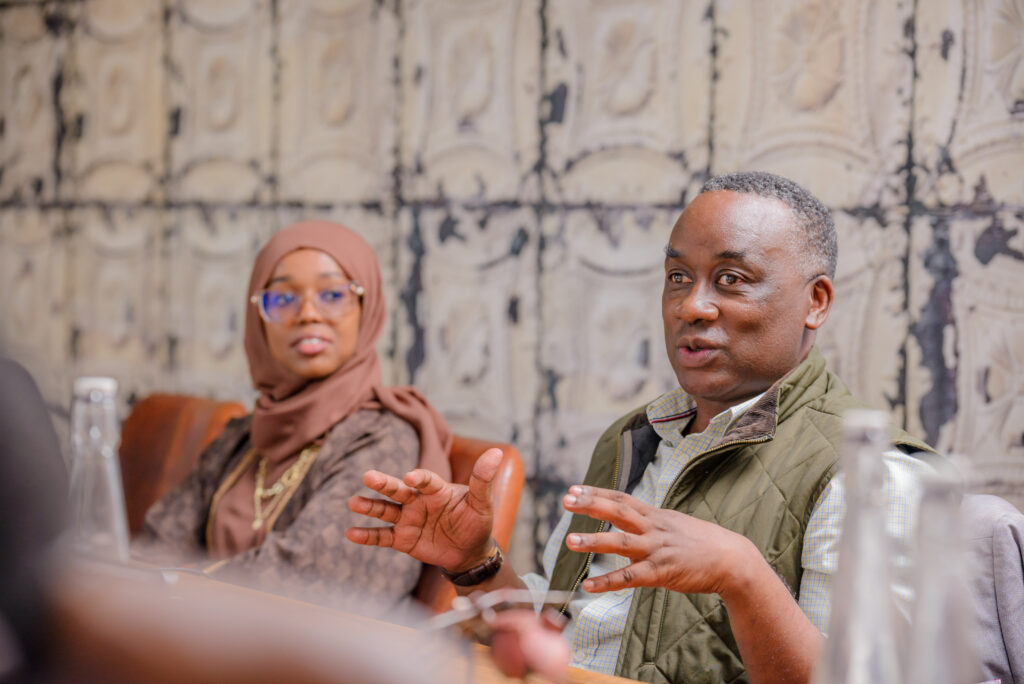
The concept of the “man in the arena,” as articulated by Roosevelt, sparked contemplation among fellows. The discussion explored the challenges and rewards of active participation in civic life, emphasizing the courage required to face adversity and contribute meaningfully to society.
Roosevelt’s critique of those who criticize from the sidelines without actively engaging in the challenges of public life prompted reflections on the role of constructive criticism and the importance of being part of the solution rather than merely pointing out problems.
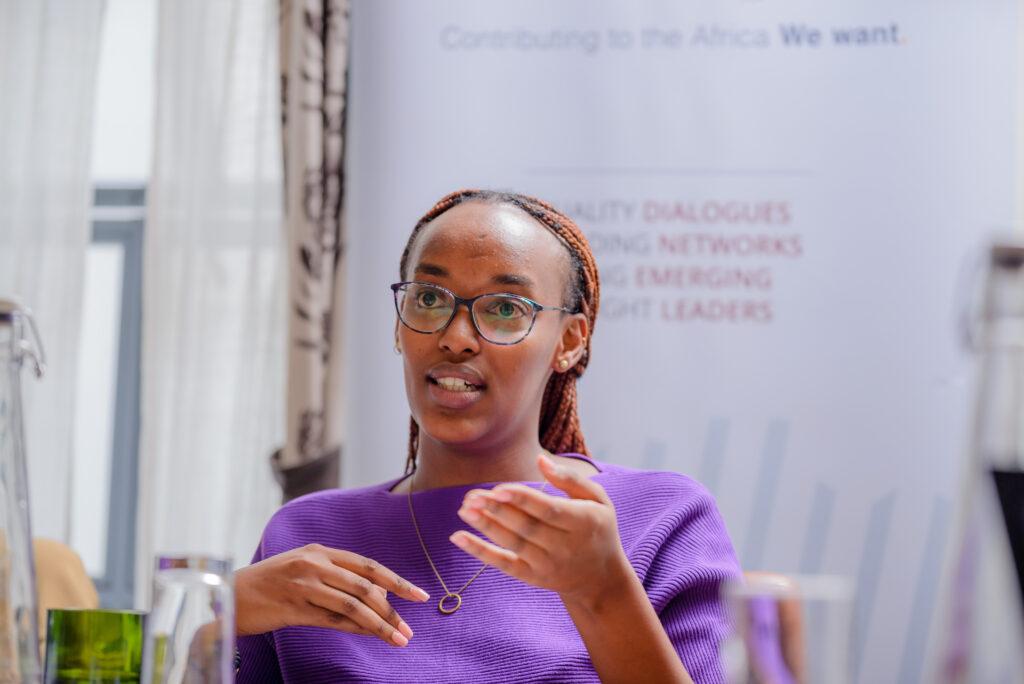
Fellows delved into Roosevelt’s perspectives on leadership and the qualities that define effective and responsible leaders. They shared their insights on how these qualities could be translated into contemporary contexts.
“Quincy”
The graduation seminar featured a screening of “Quincy,” an intimate portrayal of the extraordinary life of Quincy Jones, an African-American cultural icon and winner of 27 Grammys.
The screening looked into the life and legacy of Quincy who has made indelible contributions to the realms of music, film, and culture.
The documentary seamlessly weaves together archival footage, interviews, and personal moments, offering an in-depth look at the musician, producer, and cultural trailblazer. The film captured Jones’s journey from his early years to his remarkable career in the music industry, showcasing his impact on shaping the landscape of American and global music.
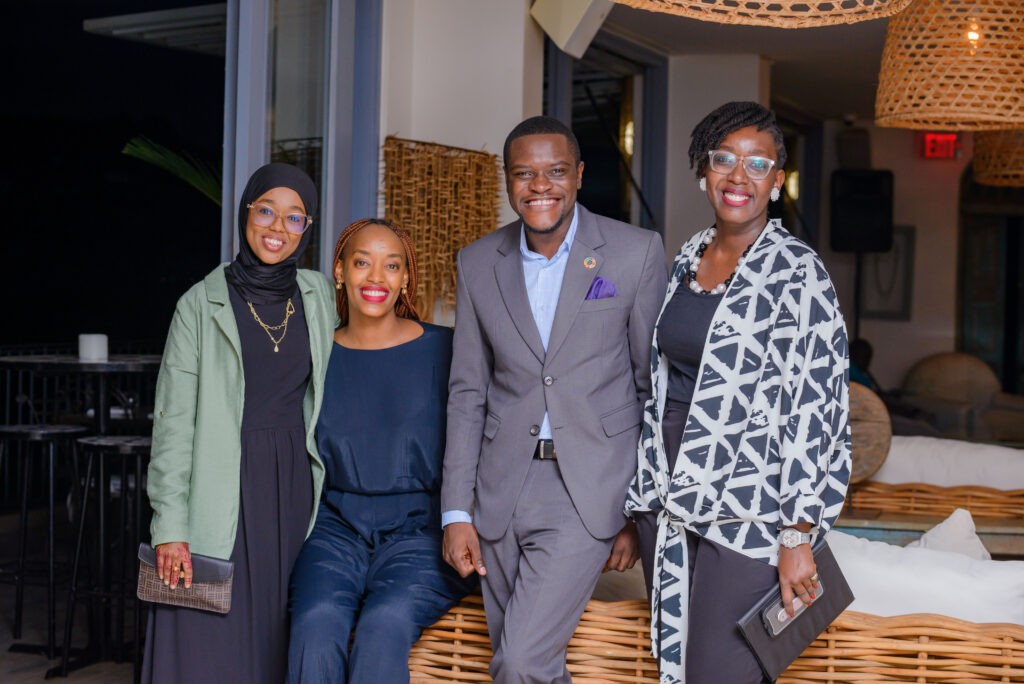
The documentary successfully portrays Quincy Jones’s artistic genius and multifaceted talent. From his early years as a trumpeter to his prolific career as a producer, composer, and mentor, Jones’s contributions were celebrated as a testament to the power of creativity and perseverance.
The film also emphasizes Quincy Jones’s impact on African-American culture, capturing not only his musical achievements but also his role in breaking racial barriers within the entertainment industry, paving the way for future generations of Black artists.
Despite his immense success, the film revealed the personal struggles and vulnerabilities that shaped Jones’s journey. This humanizing aspect, he noted, made the documentary relatable and added depth to the understanding of the man behind the legend.
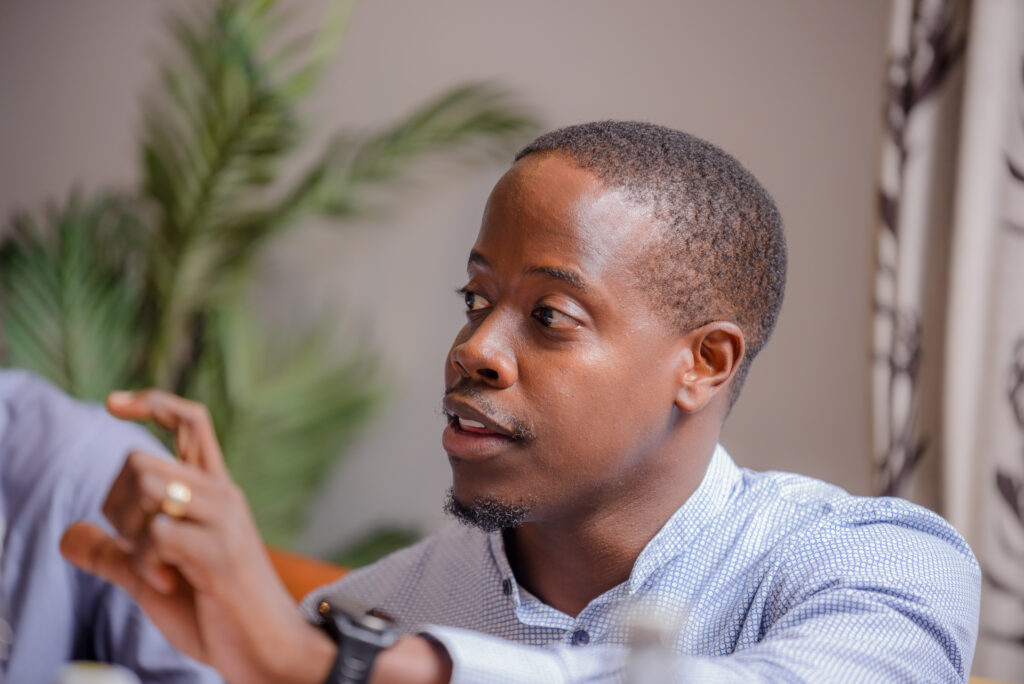
The film also touches upon Quincy Jones’s enduring legacy and the inspiration he continues to provide to aspiring artists and cultural influencers. Fellows were encouraged to reflect on how Jones’s story could inform and inspire their own pursuits, emphasizing the importance of resilience and creativity in the face of challenges.
The documentary screening not only celebrated the life of a cultural icon but also prompted meaningful discussions on the intersection of art, culture, and social change.
Small Change; Why the Revolution will not be tweeted
Malcolm Gladwell’s essay “Small Change: Why the Revolution Will Not Be Tweeted” Gladwell challenges the idea that social media, particularly platforms like Twitter and Facebook, can effectively drive social and political change.
Gladwell argues that social media primarily fosters weak ties, which may lack the depth and commitment required for sustained activism. Gladwell suggests that the low-risk nature of online activism may not generate the same commitment and sacrifice seen in historical movements.
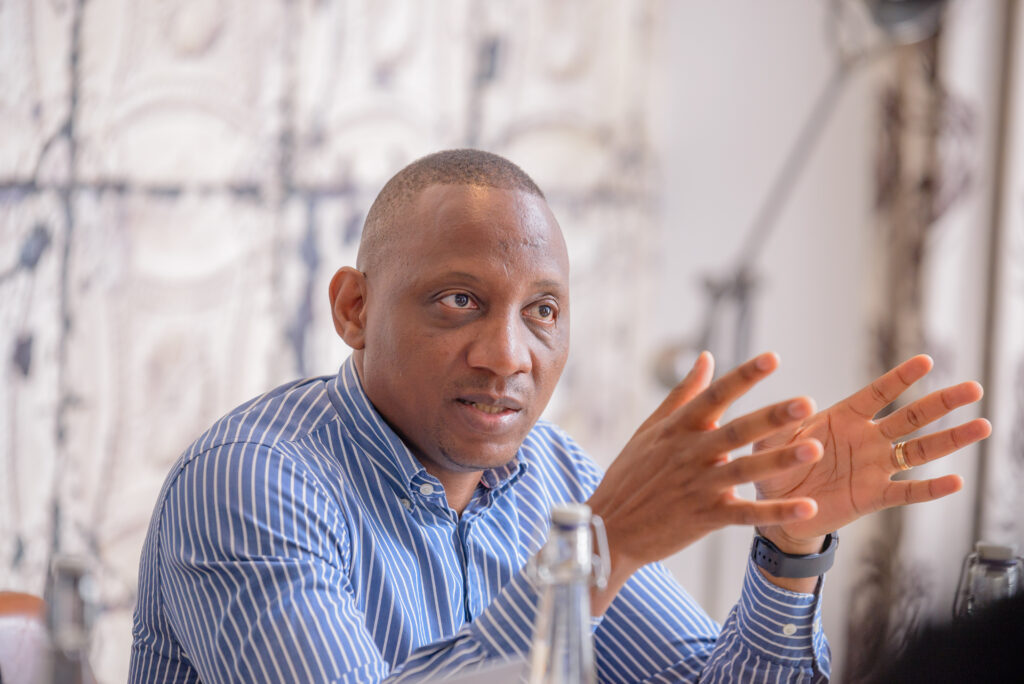
Gladwell touches upon the rapid dissemination of information through social media and whether this pace hinders a thorough understanding of complex social issues. The essay considers the balance between immediacy and depth in activism.
While acknowledging the role of social media in spreading information and mobilizing people, Gladwell’s essay argues that social media might not be as effective as traditional forms of activism in bringing about significant societal change.
The essay encouraged fellows to critically assess the role of social media in driving social change, contributing to a more informed and reflective understanding of contemporary activism.
Leadership Conversation: Values-based Leadership
Mzee Augustine Ruzindana, a Senior Citizen and former Inspector General of Government (IGG) of Uganda had a leadership conversation with the YELP Class of 2023.
The focus of the conversation centered around values-based leadership, providing insights from Mzee Ruzindana’s notable and extensive experience in public service and his contributions to leadership and governance.
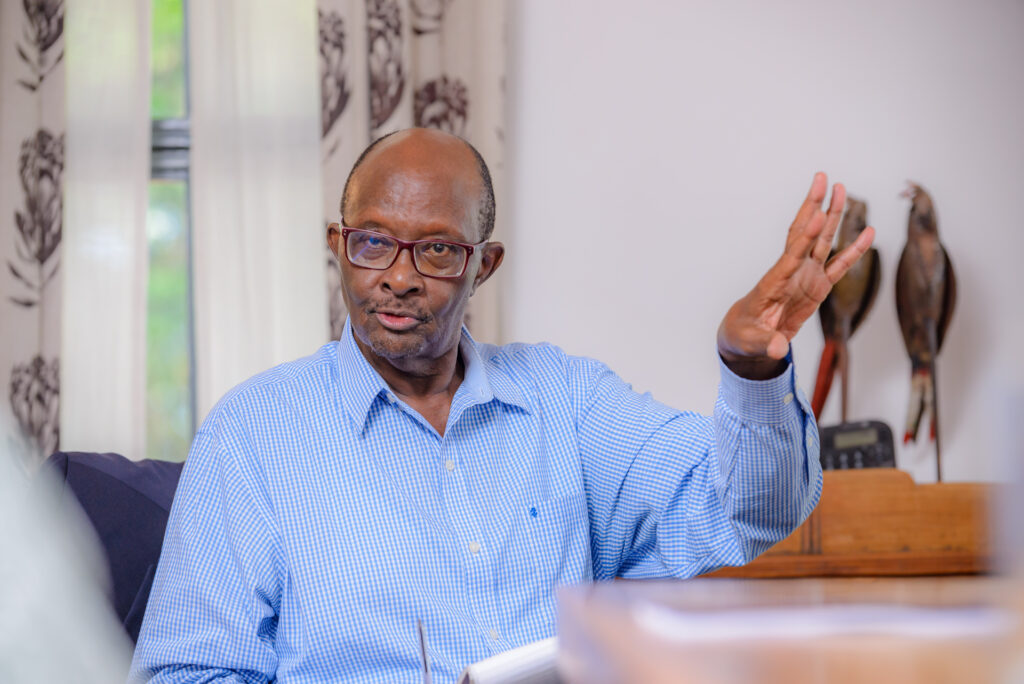
Mzee Ruzindana urged fellows to align their decisions and actions with a set of core values to guide their leadership journey. He stressed that ethical behavior should be at the forefront of leadership, influencing decision-making processes and fostering a culture of trust and accountability within organizations.
The conversation extended to the influence of values on organizational culture. Mzee Ruzindana discussed with fellows how they, through adherence to values, can shape a positive and ethical culture within their teams and institutions.
Fellows engaged Mzee Ruzindana about the challenges and dilemmas that they face while upholding values. He shared anecdotes from his career, highlighting the importance of navigating complex situations with integrity and a commitment to the greater good.
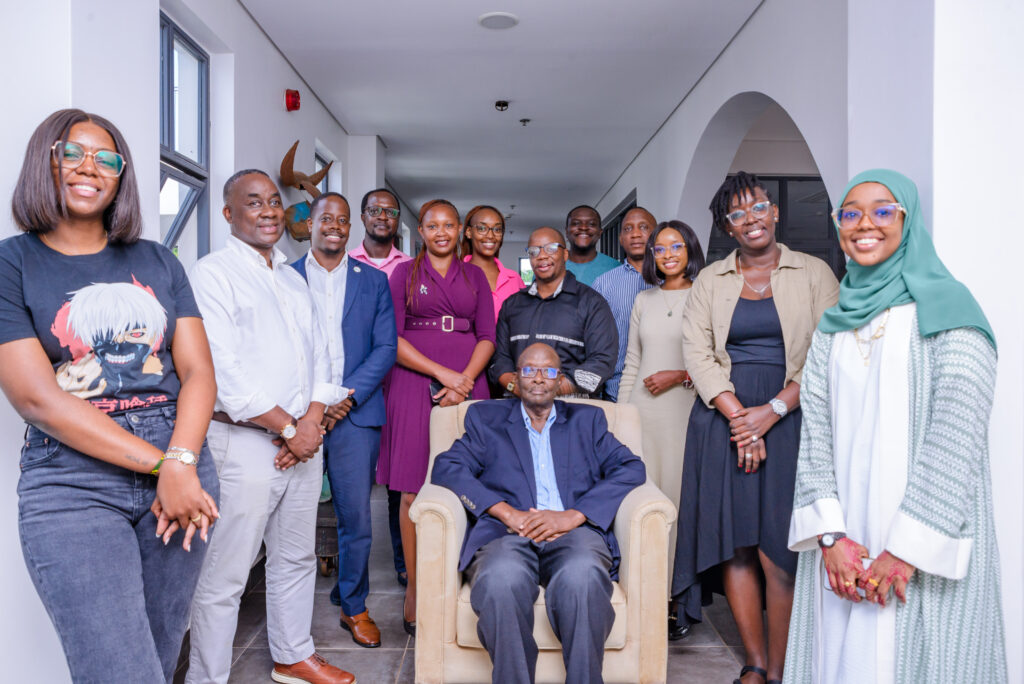
Feedback from fellows indicated a high level of appreciation for the depth of the conversation and the relevance of Mzee Ruzindana’s insights to contemporary leadership challenges and understanding of the principles that underpin effective and ethical leadership.
Many expressed gratitude for the opportunity to learn from a seasoned leader with a rich history of public service and timeless wisdom.
Graduation
Hosted by Ivan Koreta and Rita Uwamahoro, the YELP Class of 2023 Graduation Ceremony was a celebration of achievements, shared experiences, and the beginning of a new chapter in the leadership journeys of fellows.
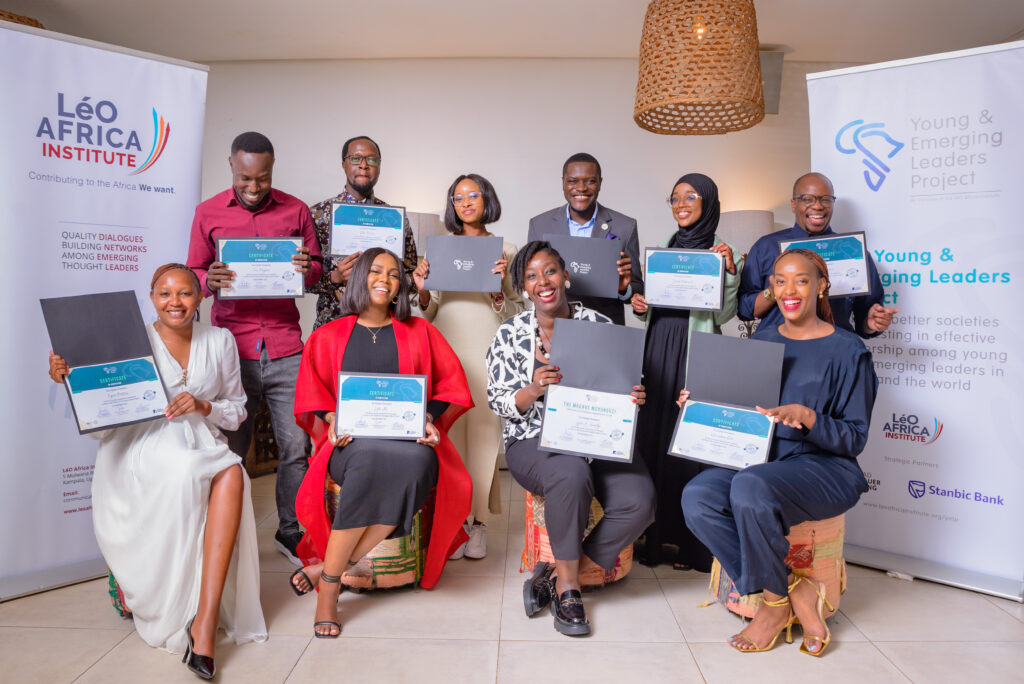
Lydie Uwantege delivered a heartfelt valedictorian speech, reflecting on the bittersweet moment as the YELP Class of 2023’s journey came to an end.
Lydie encouraged her fellow graduates to collaborate and lead with purpose and stressed the need to be change-makers, integrating and replicating change for the benefit of all.


